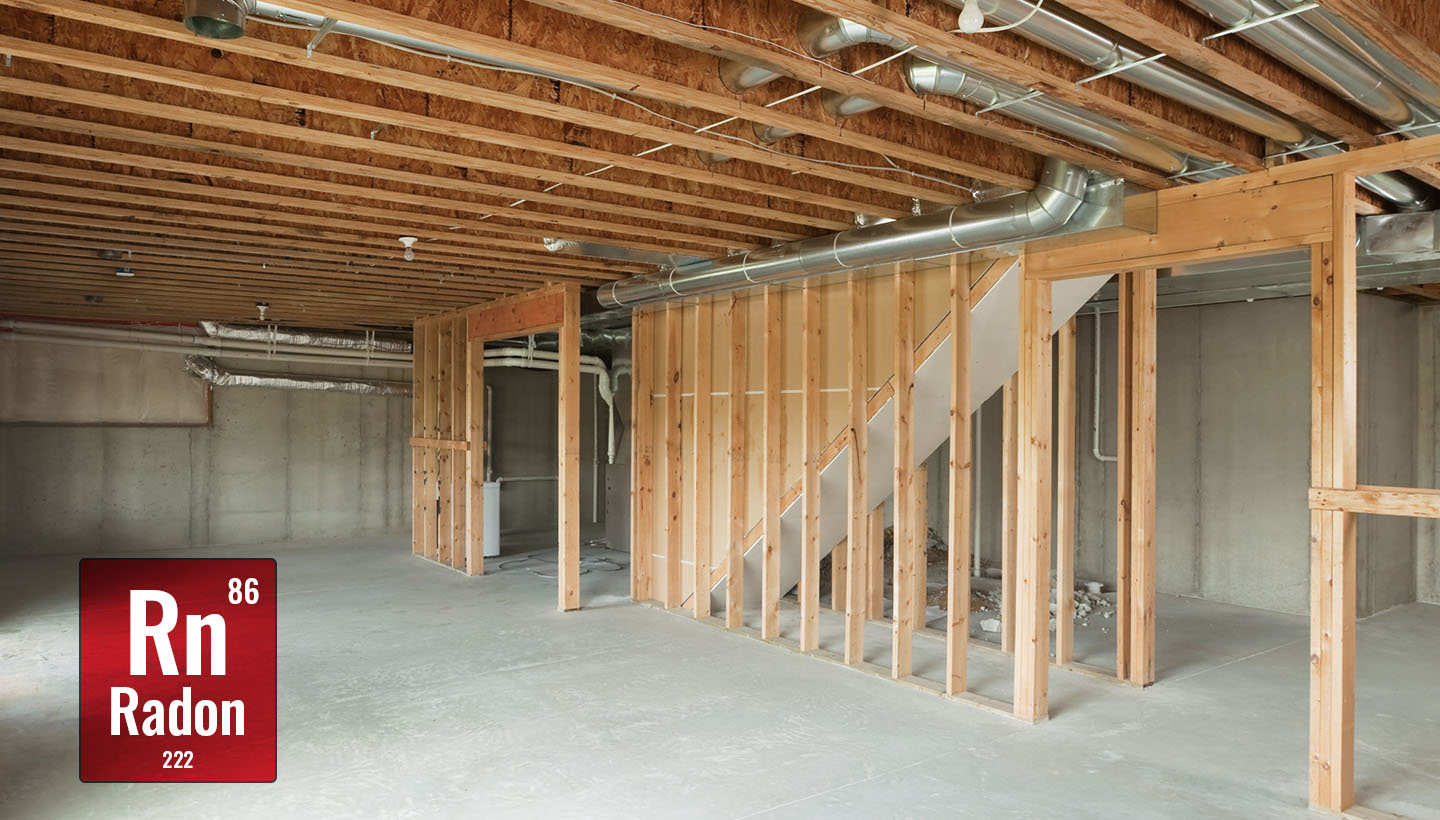
How to Become a Certified Radon Inspector
Radon testing is an in-demand home inspection specialty that homebuyers and homeowners often need in addition to a standard home inspection. Home inspectors must be certified in radon inspection and testing to legally offer it as a service. There are six steps you must complete to become certified as a radon professional in your state. Read on for a roadmap to radon certification.
You can learn more about radon, how it develops, its dangers, and the importance of testing homes in any region of the U.S. in this blog.
6 Steps to Become a Certified Radon Inspector
#1 – Understand Your State’s Radon Inspector Certification Requirements
Each state has its own certification requirements for radon testing and mitigation. Most state radon regulations follow the proficiency requirements established by the U.S. Environmental Protection Agency (EPA), the National Radon Safety Board (NRSB), and the National Radon Proficiency Program (NRPP).
You can find your state’s radon office, website, phone number, and contact person here.
#2 – Complete an Approved Radon Inspector Pre-Certification Course
Next, you’ll need to complete a radon training course approved by either the NRSB or the NRPP before applying for your radon certification. There are different radon certifications you can earn for different aspects of radon testing and mitigation. Be sure to review the certification options and decide which you’d like to pursue before beginning a course.
Types of Radon Certifications
Radon Measurement Technician (RMT)
A Radon Measurement Technician (RMT) can place and retrieve radon testing devices under the supervision of a Radon Measurement Professional (RMP). RMTs must complete an 8-hour course covering the fundamentals of radon, radon entry in homes and buildings, radon health risks, radon measurement devices and methods, and radon safety protocol.
Radon Measurement Professional (RMP)
A Radon Measurement Professional (RMP) can perform radon testing in homes, analyze results, and interpret them for clients. RMP’s must take a 16-hour Initial Training Course that covers everything the RMT course covers as well as radiation physics, risk assessment, epidemiological studies for radon, and the differences in measurement devices and methods.
Radon Mitigation Specialist (RMS)
A Radon Mitigation Specialist (RMS) evaluates radon measurements, and designs radon remediation systems, and installs them in homes and buildings. RMS professionals must complete 24 course hours of radon mitigation training along with the training hours required for an RMP.
Radon Mitigation Installer (RMI)
A Radon Mitigation Installer (RMI) is certified to install radon mitigation systems while supervised by an RMS. RMIs must complete RMT or RMP training along with a 20-hour radon mitigation installer course.
Each of the certifications above is good for two years and requires additional Continuing Education (CE) hours that must be completed biennially to maintain your certification. You can find in-depth information about the NRSB and NRPP radon certification options here and here.
Be sure to check if your state prefers one of these certification organizations over the other before beginning your path to radon certification.
#3 – Pass a National Radon Professional Exam (If Your State Requires It)
Both the NRSB and NRPP require applicants to pass a certification exam to become certified at the national level. If you plan to become an NRSB- or NRPP-certified radon professional, this will be your path. You can find information about NRSB’s certification exams here and NRPP’s certification exams at this link.
Taking this exam may not be a requirement of your state, however. If you plan to become certified through a state radon training program only, be sure to check your state’s specific exam (and training) requirement.
#4 – Apply for Your Radon Inspection Certification
Once you’ve completed your state’s required radon training course and passed your exam (if required), it’s time to apply for your radon inspection license or certification. This process typically involves:
- Completing an application
- Providing proof that you have completed an approved radon training course
- Submitting proof of passing exam scores whether you’ve taken a national exam or a state-required exam
- Paying an application fee
Depending on your certification level, your state may require you to submit detailed business documentation about your business and services. This may include explaining:
- The type of radon service(s) you will provide
- The approved testing methods and devices you plan to use
- The documentation you will provide your clients before, during, and after services
- The safety protocols you will use
#5 – Purchase Radon Testing Equipment
Just like when you start a home inspection business and start performing inspections, there is standard equipment you need to test for radon. In fact, your radon certification level may require that you use specific radon-testing devices approved by your state, the NRSB, and/or the NRPP.
There are two types of radon testing devices used by radon inspectors. Short-term testing monitors (known as passive devices) are used to test home radon levels over a few days or a few weeks. These are best for quick, short-term results. Long-term testing monitors (known as active devices) are used to test home radon levels over a few months and are best for finding a more accurate average level of radon present in a home.
You can learn more about different short- and long-term radon testing devices, when to use them, and why they are used at this link. It’s best to do your research, check state requirements, and talk with others in the field when putting together your radon inspection tool kit.
#6 – Establish Your Radon Inspection Business
Once you’ve received your state certification and invested in the testing equipment you need, it’s time to launch your business.
If you already have a successful home inspection business, you can simply start offering and marketing radon testing as an added service for your clients. Be sure to let existing clients and referral sources in your network know that you now offer radon testing as a certified radon inspector.
If you’re certified through the NRSB and/or the NRPP, you can be added to a list of certified radon inspectors that is searchable by homeowners in your state looking for services. Through your state certification, you can also be added to a state-certified list of radon inspectors available for hire. Be sure to keep your contact and website information up to date in these directories, so prospective clients can find your services when they need them.
Consider promoting your newly certified radon inspection services via email marketing, print marketing, your social media channels, and word-of-mouth. Many of same marketing best practices that work for general home inspectors will work well for radon inspectors, too.
Frequently Asked Questions About Being a Radon Inspector
Does Every Home Need a Radon Inspection?
The EPA estimates that one out of every 15 homes has a dangerous level of radon (a level that’s higher than 4 picocuries per liter). Prolonged exposure to high levels of radon is the second leading cause of lung cancer among Americans. Because of the serious respiratory health risks involved with radon and because it’s a naturally occurring radioactive gas, it’s important for all homes to be tested to ensure levels remain low and safe.
What Does a Certified Radon Inspector Do?
Certified radon inspectors are skilled inspectors who specialize in radon testing and, with a specific certification, radon mitigation. During a radon inspection, a radon inspector samples the air to test for unsafe levels of radon gas. If unsafe levels are found, the inspector recommends steps to take to reduce radon levels, including installing a radon reduction system.
How Much Do Certified Radon Inspectors Make?
According to the latest data from ZipRecruiter, radon measurement professionals make an average of $40,600 per year. Of course, this salary level depends on many factors, such as your location and the type of certification you have. As an example, an RMT who only places and retrieves radon measurement devices from homes might make less. And radon mitigation professionals who design and install radon mitigation systems likely make more.
Consider also that many radon inspectors perform this service as an added offering in addition to their standard home inspection services. Offering radon testing and inspection can help you make more per home inspection and opens up a new revenue stream for your business when standard inspection jobs slow.
The average cost of a professional radon inspection for a home today runs around $400 depending on the size of the home. It may be more when using multiple testing methods or doing longer-term testing.
How Much Does a Radon Inspector Certification Cost?
The cost of radon inspection training and certification depends on your level of certification. Certification courses run on average between $200 up to $600. There are also renewal requirements you’ll need to meet to keep your certification active every two years.
How Long Does It Take to Become a Certified Radon Inspector?
The time it takes you to become certified as a radon inspector depends on the level of certification you’re seeking. Generally, you can become certified in under a month if it’s your sole focus.
Most home inspectors who are looking to add radon testing as a service will take the Initial Radon Measurement Professional Course, which is 16 hours of learning time. Other certifications may require a shorter course (as with radon measurement technicians) or a longer course (as with radon mitigation specialists).
Be sure to figure in the time it takes to complete your training course, prepare for and pass your exam (if required), and complete the application process in your state.
Additional Resources for Radon Knowledge and Certification
- See the EPA’s radon zone map, learn where radon is more common in the U.S., and find the link to your state’s radon office.
- Learn the NRSB’s radon certification steps.
- Learn the NRPP’s radon certification steps.
- Read the EPA’s consumer resources about radon.
- Learn about the latest changes to national radon regulations in our blog from March 2022.




